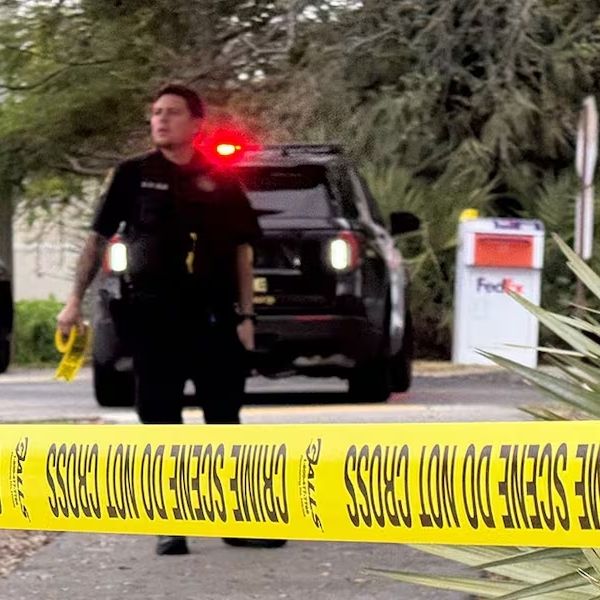The Florida Supreme Court on Wednesday declined to stop Victor Tony Jones’ scheduled execution next week for the 1990 murders of a couple in Miami-Dade County, rejecting claims that abuse he suffered as a child at a state reform school should affect his sentence.
Jones, 64, argued that “newly discovered evidence” of abuse at the now-closed Okeechobee School would likely result in a life sentence if he were retried. This evidence stems from Jones and hundreds of other men receiving state compensation this year for abuse at Okeechobee and the Arthur G. Dozier School for Boys.
But the Supreme Court, in a 5-1 decision, ruled that the abuse claims are “procedurally barred.” The opinion noted, “The alleged abuse occurred nearly 50 years ago — and roughly 15 years before his trial — yet Jones did not raise it at trial or in any prior postconviction proceeding. Because Jones’ claim about any abuse he suffered at the Okeechobee School could have and should have been raised earlier, it is procedurally barred.”
The 23-page opinion added that any mitigation Jones could present in a retrial would stem from abuse already known to him since the 1970s, not from the 2025 compensation eligibility letter. The court concluded that even if the compensation eligibility counts as newly discovered evidence, it would not likely result in a life sentence on retrial. Chief Justice Carlos Muniz and Justices John Couriel, Jamie Grosshans, Renatha Francis, and Meredith Sasso joined the majority. Justice Jorge Labarga dissented, and Justice Charles Canady recused himself.
Gov. Ron DeSantis signed Jones’ death warrant on Aug. 29. Jones would become the 13th inmate executed in Florida this year in the modern era. He was convicted of murdering 66-year-old Matilda Nestor and 67-year-old Jacob Nestor at their Miami-Dade business in December 1990. According to court records, Mrs. Nestor was stabbed in the neck, severing her aorta, while Mr. Nestor was stabbed in the chest, puncturing his heart. Before dying, Mr. Nestor shot Jones in the forehead. Police found Jones inside the building with the couple’s wallets, keys, and other belongings in his pockets. Jones admitted to a nurse at the hospital that he killed them because they owed him money.
Jones’ attorneys also argued that he has an intellectual disability and that executing him would violate the U.S. Constitution’s Eighth Amendment ban on cruel and unusual punishment, but the Supreme Court rejected these claims. Attorneys often file last-minute appeals to the U.S. Supreme Court. Jones is scheduled for execution at 6 p.m. Tuesday at Florida State Prison.
The Florida Catholic Conference sent a letter to DeSantis urging him to commute Jones’ sentence to life without parole. Executive Director Michael Sheedy wrote, “It cannot be that with one hand the state pays out compensation to men abused and tortured as children in its care while at the same time with its other hand puts one of these victims to death. This extraordinary factor alone justifies commuting the death penalty to life without parole.”
Before 2025, Florida’s modern-era record for executions in a single year was eight in 1984 and 2014. Since the reinstatement of the death penalty in 1976, the state executed David Pittman on Sept. 17; Curtis Windom on Aug. 28; Kayle Bates on Aug. 19; Edward Zakrzewski on July 31; Michael Bell on July 15; Thomas Gudinas on June 24; Anthony Wainwright on June 10; Glen Rogers on May 15; Jeffrey Hutchinson on May 1; Michael Tanzi on April 8; Edward James on March 20; and James Ford on Feb. 13.
This article has been carefully fact-checked by our editorial team to ensure accuracy and eliminate any misleading information. We are committed to maintaining the highest standards of integrity in our content.
















Leave a Reply